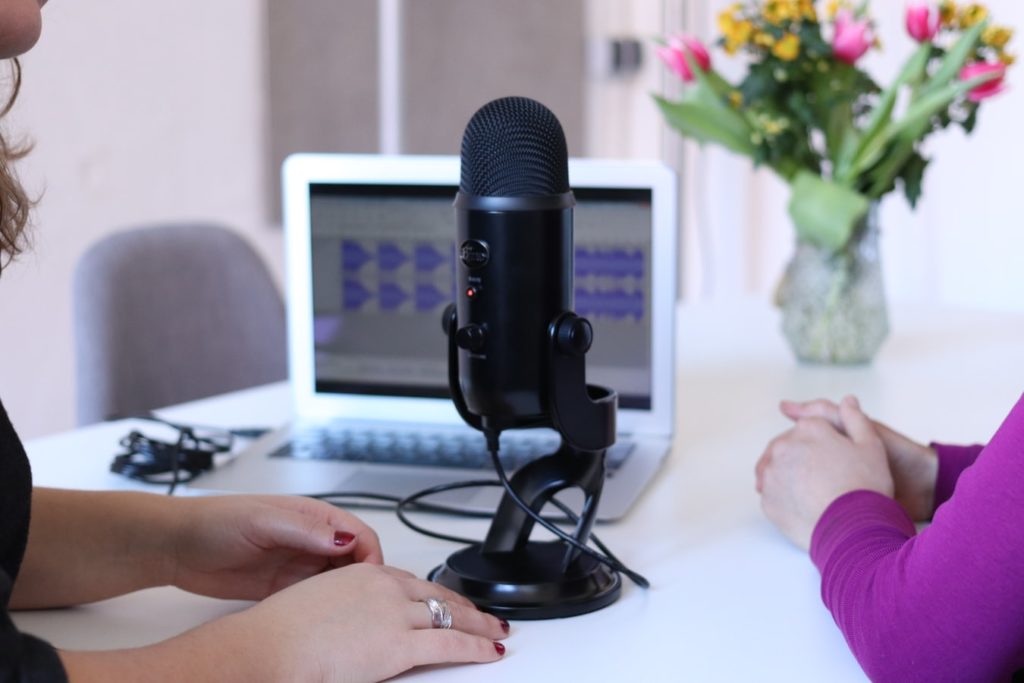Landing a podcast guest spot requires more than just sending mass emails to hosts. According to Edison Research, over 464.7 million people globally listened to podcasts in 2023, making podcast appearances an invaluable platform for sharing expertise and building authority. However, podcast hosts receive dozens of guest pitches daily, with studies showing that personalized pitches receive response rates up to 8x higher than generic templates. Success comes from understanding each show’s unique format, crafting stories that resonate with specific audiences, and following proper outreach etiquette. This comprehensive guide will walk you through proven strategies to create compelling podcast pitches that get noticed and accepted.
5WPR Insights
Research Before You Pitch
The foundation of a successful podcast pitch starts with thorough research. According to a 2023 survey by Podcast Magazine, 82% of hosts cite “lack of show familiarity” as their top reason for rejecting guest pitches. Start by listening to at least 3-5 recent episodes of your target podcast. Pay attention to:
The host’s interview style and tone – Are they formal or conversational? Do they prefer data-driven discussions or personal stories? Match their approach in your pitch.
Common themes and topics – What subjects appear frequently? What angles haven’t been covered yet? Look for gaps you can fill with your expertise.
Audience engagement – Read listener reviews and social media comments to understand what resonates with the audience. What questions do they ask? What problems do they face?
Take detailed notes during this process. Create a spreadsheet tracking each show’s format, typical episode length, guest types, and unique characteristics. This information becomes invaluable when personalizing your pitches.
Crafting Your Pitch Email
The structure and content of your pitch email can make or break your chances of booking. Research from Podmatch shows that successful pitches average 150-200 words and follow a specific format:
Subject Line Strategy
Your subject line must grab attention while remaining professional. According to email marketing data, personalized subject lines see 50% higher open rates. Examples of effective subject lines:
“[Show Name]: Fresh perspective on [specific topic from recent episode]”
“Following up on [episode #] – Additional insights for your listeners”
“New research on [host’s area of interest] for [Show Name] audience”
Opening Paragraph
Start by demonstrating you know the show. Reference a specific episode, quote, or discussion point that connects to your expertise. For example:
“Your recent episode #123 with [Guest Name] about [Topic] resonated strongly, particularly the discussion at 15:20 about [specific point]. As someone who has [relevant experience/credential], I’d love to expand on this topic for your audience.”
Value Proposition
Clearly articulate what you’ll bring to the show. According to PodcastGuests.com, 73% of successful pitches include specific talking points or angles unique to that show. Focus on audience benefits rather than self-promotion.
Story Fit and Topic Selection
Selecting the right topic angle proves critical for success. Data from Podcast Movement shows that 65% of hosts prioritize guests who can provide fresh perspectives on relevant issues.
Identifying Relevant Topics
Review the podcast’s episode archive for content gaps. Look for:
- Topics mentioned briefly that deserve deeper exploration
- Common themes you can approach from a new angle
- Current industry trends relevant to the audience
- Problems frequently mentioned in listener feedback
Structuring Your Story
Once you’ve identified your topic, structure it for maximum impact. Research shows that stories following a clear problem-solution format receive higher engagement. Include:
- A clear problem statement relevant to the audience
- Real examples or case studies
- Actionable solutions or frameworks
- Measurable results or outcomes
Format Considerations
Different podcast formats require different approaches. Understanding and adapting to these variations increases your chances of success.
Interview-Style Shows
For traditional interview formats, prepare:
- 3-5 main talking points
- Relevant stories or examples
- Data or statistics to support your points
- Questions you can ask the host
Conversational Formats
More casual shows require:
- Personal anecdotes
- Ability to engage in natural dialogue
- Flexibility to follow unexpected directions
- Humor and relatability
Follow-Up Etiquette
The follow-up process requires careful timing and approach. Studies show that 35% of successful podcast bookings come from follow-up emails.
Timing Your Follow-Ups
Wait 7-10 days before your first follow-up. Statistics show that following up too quickly can reduce response rates by 45%. Create a schedule:
First follow-up: 7-10 days after initial pitch
Second follow-up: 14 days after first follow-up
Final follow-up: 30 days after second follow-up
Professional Follow-Up Techniques
Keep follow-ups brief and add value. For example:
“Since my initial email, I published new research on [topic] that further supports the discussion points I proposed. Would you be interested in exploring this with your audience?”
Tracking and Management
Implement a system to track your outreach efforts. Use tools like:
- Spreadsheets to monitor pitch status
- Calendar reminders for follow-ups
- Notes on show-specific details
- Response tracking and analysis
Conclusion
Successfully pitching podcast hosts requires a strategic combination of research, personalization, and professional follow-through. Focus on providing value to each show’s unique audience while respecting hosts’ time and preferences. Start by thoroughly researching your target podcasts, craft personalized pitches that demonstrate show familiarity, and maintain professional follow-up practices. Track your efforts and analyze results to continuously improve your approach. Remember that building relationships with hosts often leads to repeat appearances and referrals to other shows. Take action today by creating your podcast target list and beginning your research phase. With dedication to these principles, you’ll increase your chances of securing valuable podcast guest appearances that benefit both you and the show’s audience.

More PR Insights
How To Manage Rumors About Your Brand
Media Embargoes Explained: A PR Pro’s Guide To Getting It Right
How To Build A Story Pipeline For Consistent Content Creation